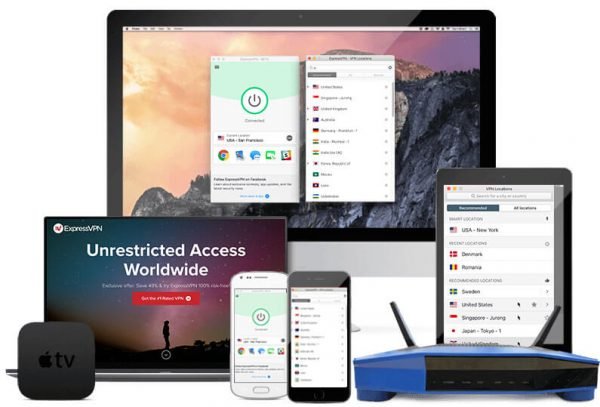Table of Contents
ExpressVPN is a favourite British Virgin Islands-based VPN services provider. The market is tight as there’s a bunch of competition around. Still, ExpressVPN precisely knows how to maintain and be favourite: it’s considered the current choice of the very best VPN providers, offering more features than any other provider.
For instance, the company provides a vast network of more than 3,000 servers cited across 160 cities in 94 countries. The US and Europe have great coverage, but ExpressVPN also got many locations in Asia and some countries who appear absent elsewhere. There are more than 20 Asia Pacific countries alone, for example- TunnelBear VPN covers 22 countries only in total.
The customer’s Platform support is another highlight, with ExpressVPN providing apps for Android, Windows, Mac, iOS, Linux and others, a custom firmware for many routers, as well as detailed manual setup guides for Apple TV, Fire TV, PlayStation, Chromebooks, Kindle Fire and more.
- Do you want to try ExpressVPN? Visit the official website here.
There are priceless technical features everywhere you need are available. ExpressVPN secures your internet traffic by using its DNS servers, for example. High-end encryption technologies component prevent even the most advanced attackers’ such cyber-criminals from spying on your online activities. There’s a brilliant split-tunnelling system, which allows you to manage which correctly apps use the VPN, and which will be routed via your regular internet connection. That’s very important if you find some apps don’t work with a VPN, or running through the VPN appear slows them down.
| Advantages | Disadvantages |
| Great servers performance | Browser Extension require ExpressVPN App |
| Excellent and prompt support | Above-average prices |
| Support more than 155 locations across 94 countries | Fairly basic mobile Apps |
The best ExpressVPN subscription Offer: 1year plan cost $6.67 per month (with total of $80.04)
A manifest and best privacy policy describe that ExpressVPN doesn’t log any sensitive information. And in contrast to most of the competition, this is not some generic marketing promise. The web site goes into great detail on exactly what the service does and doesn’t collect. Expressvpn has recently had its servers audited to verify it’s following its privacy policy.
The real standout feature might be supporting, where ExpressVPN has agents available 24/7 on live chat. It’s not the very basic, outsourced, first-line support you’ll often get with other services, either: they’re experts who can walk you thru almost any technical issue. If you run into trouble, then, you will not be waiting each day for each support response. In our experience, there’s always someone available on ExpressVPN’s live chat, and you’ll be getting quality help for your problems within a few minutes.
Recent improvements include support for five simultaneous connections, up from the previous three. A couple of providers support even more – IPVanish and personal Internet Access can handle 10 simultaneous connections, Surfshark and Windscribe haven’t any limits in the least – but five is that the industry standard, and sure to be enough for many users. And if it isn’t quite enough to fit your needs, use a router, and you will bypass the limit entirely.
App improvements include IKEv2 support on Windows and Mac. The Android app can now both automatically connect you to the VPN when joining untrusted networks, but also disconnect once you join a trusted network (an unusual but smart idea.) And a simplified interface means it now takes fewer clicks to seek out and hook up with the servers you would like.
There’s a boost for ExpressVPN’s Firefox extension, too, which has gained an equivalent WebRTC blocking, location spoofing and HTTPS Everywhere support because of the company’s Chrome offering.
The apps and browser extensions are now available in additional than a dozen languages: Danish, Dutch, Finnish, French, German, Italian, Japanese, Korean, Norwegian, Polish, Portuguese, Russian, Spanish, Swedish, Thai, and Turkish. (Some of these languages aren’t available on all platforms, but it is a good start, and therefore the company will presumably fill within the gaps over time.)
ExpressVPN’s new TrustedServer technology sees all the company’s servers now run in RAM. They never write to the disk drive, minimizing the prospect that an attacker can recover any sensitive files. Every server loads the newest image when it boots, too, limiting vulnerabilities which may arise from any misconfiguration, and ensuring that a server cannot be compromised by an attacker installing a backdoor. (Or not for long, anyway.)
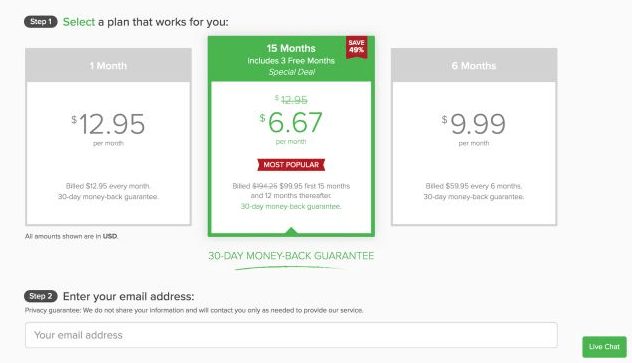
Plans And Pricing
ExpressVPN features a very simple pricing structure with only three plans, and these start with a monthly-billed product for $12.95.
That’s not cheap, but it’s almost like many providers (CyberGhost, GooseVPN, Hotspot Shield and VyprVPN all charge around $13 for his or her monthly plans), and shortly from the $9-$10 charged by most big-name VPNs.
Sign up for ExpressVPN’s 6-month plan, and therefore the price drops to $9.99 per month. That’s an inexpensive discount, and it also gives you more flexibility than you will get with some competitors, who don’t offer a 6-month plan in the least.
The annual plan cuts your costs still further to a monthly equivalent of $8.32, a chunky 35% discount on the monthly price. While that beats Hotspot Shield’s annual $9.99, and is not far away from NordVPN and HideMyAss! $6.99, it’s quite twice a number of the competition (Ivacy and personal Internet Access ask $3.33, Speedify and Zenmate are priced at $3.99, Windscribe is $4.08.)
The difference becomes even more significant if you’re happy to check in for extended periods. While ExpressVPN stops with its annual plan, choosing a two or three-year subscription with GooseVPN, Ivacy, VPN Unlimited, Surfshark et al. can cut prices to the same $2 to $3 a month.
There’s more to a VPN than price, of course. Anyone offers low headline rates; it’s providing an honest service, too, that is the tricky part.
There are ways to save lots of some cash, too. Signing up with our exclusive deal adds three free months to the annual ExpressVPN subscription, supplying you with 15 months of service for an efficient $6.67 per month.
Decide to check-in, and you will find a good range of payment methods, including cards, PayPal, Bitcoin, and some other players (AliPay, Yandex Money, WebMoney and more.)
If you are not entirely convinced, installing the Android or an iOS app gets you a 7-day trial. And even after delivering your cash, ExpressVPN’s 30-day money-back guarantee allows you to verify the service for yourself securely.
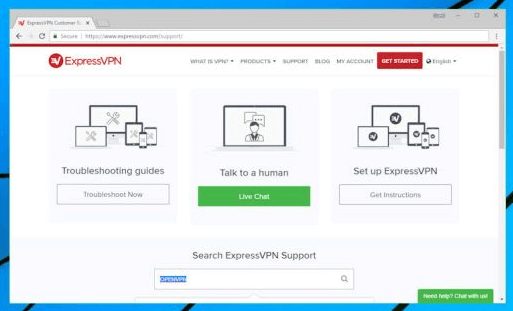
If you opt, you would like to cancel. It is also very straightforward. There are not any small-print clauses to catch you out (no refund if you’ve logged on quite x times, or used quite y GB of bandwidth.) you’ll use the service, in full, for 30 days, and if you’re unhappy, otherwise you simply change your mind, just tell ExpressVPN, and you will get your a refund. That has got to be a reassuring sign of just how confident ExpressVPN is in its service.
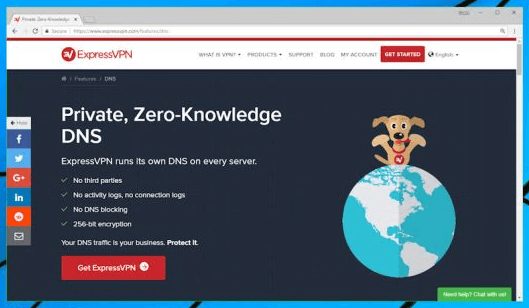
Privacy
Every VPN claims to supply complete privacy, but drill right down to the detail, and it is often little or no substance to back this up. ExpressVPN is refreshingly different because the corporate doesn’t just tell you ways great it’s, it also has an impressively long list of features to assists and justifies every word.
Take encryption as an example. Most services might mention that they support OpenVPN, or drop by regard to AES-256, but ExpressVPN goes much, much further.
The company explains that it uses a 4096-bit SHA-512 RSA certificate, as an example, with AES-256-CBC to encrypt its control channel and HMAC (Hash Message Authentication Code) protecting against regular data being altered in real-time.
To confirm this, we examined ExpressVPN’s configuration files for OpenVPN, and therefore the details were even as the corporate had described.
Support for Perfect Forward Secrecy adds another layer of protection by automatically assigning you a secret replacement key whenever you connect, then replacing it every sixty minutes while the session remains open. Albeit an attacker has somehow managed to compromise your system, the very most they’ll get is an hour of knowledge.
If you are not an encryption geek, this mostly just means ExpressVPN’s encryption scheme is nearly as good as you will get, anywhere. But if you’re conversant in the low-level technical details, you’ll appreciate the in-depth explanations the corporate provides on its website.
DNS support is another highlight. ExpressVPN doesn’t just offer DNS leak protection, to stop data about your online activities leaking out of the tunnel. Still, it also runs its own private, zero-knowledge, 256-bit encrypted DNS on each of its servers. That’s a severe advantage over some lesser providers, which within the worst case might redirect your DNS traffic to OpenDNS or another third-party service. Aside from the danger of logging at the DNS server, using unencrypted DNS gives attackers the prospect to intercept your requests, filter them, block them and more, all issues which largely disappear using the ExpressVPN scheme.
We didn’t test the DNS server in-depth, but websites like IPLeak, DNS Leak Test and Browser Leaks confirmed that ExpressVPN servers were using the IP address for his or her DNS queries, and none of them had any DNS or traffic leaks.
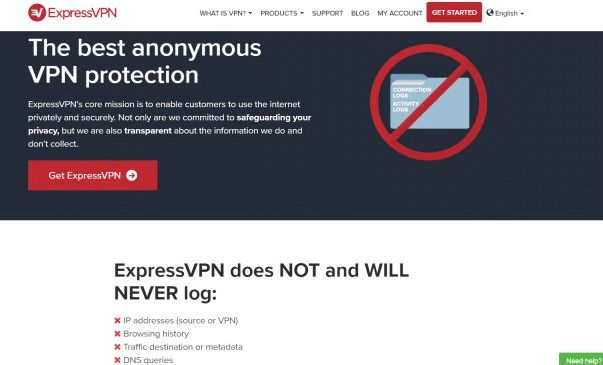
Logging
Check out the official VPN website, and you will usually find ‘NO LOGGING!’ claims prominently displayed during a large font. But a privacy policy which either gives you little or no details on the specifics or reveals corporate log a number of your information, after all.
ExpressVPN does things a touch differently. The front page of the web site doesn’t have any ‘zero log’ boasting. For instance, and you’ve got to go off to the Features page to urge the first check out the company’s position: ‘ExpressVPN doesn’t and can never log traffic data, DNS queries, or anything that would be wont to identify you.’
If you would like more, the corporate doesn’t force you to travel looking for the relevant details amongst 2,000 words of jargon-packed small print. Just clicking a link next to the ‘no log’ statement takes you to a clearly-written ‘Policy towards logs‘ page which explains what ExpressVPN collects, what it doesn’t, why the service works this manner, and what it means for users.
The page states that the VPN service doesn’t keep any logs of your IP address once you connect with ExpressVPN. Then time you’ve logged in, the VPN IP address you’re assigned, any information on the websites or pages you’re visiting (including via DNS requests) or any of your traffic.
There is still some logging. The company records each date once you connected to the service and your choice of server. But because it doesn’t store the connection time or the IP address you’re allocated, there is no way anyone can use this data to definitively link an online action back to a selected ExpressVPN account.
The company also keeps the records the version number of any customers you’ve installed, alongside the entire amount of knowledge you’ve transferred every day. This data also doesn’t constitute any quite privacy risk, and we’ve little question that other VPNs do similar things: they only don’t admit it.
The country isn’t a neighbourhood of ’14 Eyes’, the intelligence-sharing agreement also referred to as SIGINT Seniors Europe (SSEUR), and not known to be a celebration to any of its intelligence-sharing arrangements.
Despite its small size, the BVI regulates its affairs, and therefore the UK and USA do not have jurisdiction to compel ExpressVPN to release any data automatically. To form this happen, a complainant would need to raise the difficulty within the BVI supreme court, show that the records associated with a significant crime (one punishable by a year or more in prison if it happened within the BVI), and explain how those records would offer relevant evidence to that case. It’s hard to ascertain how the minimal ExpressVPN files could provide useful evidence of anything.
There’s a lot to love here. It’s clear that ExpressVPN understands the problems and is making considerable efforts to elucidate them, accurately and thoroughly, to its customers. That in itself is reassuring, and an enormous improvement on the detail-free privacy policies of the many VPNs.
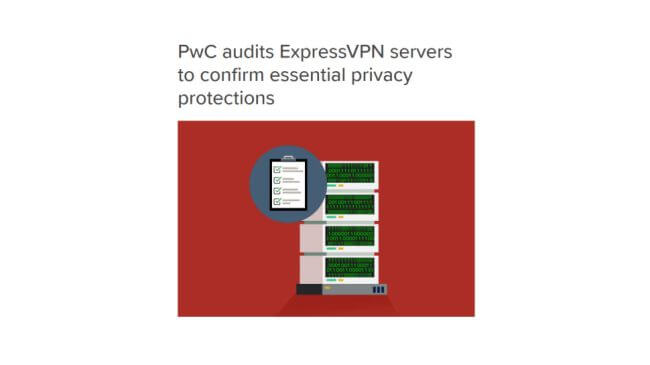
You don’t merely need to take what ExpressVPN says on trust, though. The corporate has had its TrustedServer technology and backend systems audited by PricewaterhouseCoopers to verify that it’s living up to its privacy promises. Legal restrictions mean we will not quote from the summary report, but it’s freely available for patrons to download and read.
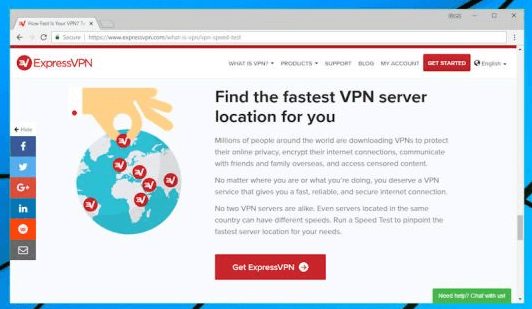
Performance
Speed is a crucial think about the selection of a VPN, and that we use several intensive tests and a few locations (UK and US) to seek out out how a service performs.
The process began within the UK, where we logged into a sample 25 of ExpressVPN’s OpenVPN-enabled servers, recorded the initial connection times and ran some ping tests to see for latency issues. These won’t necessarily affect download speeds, but they’re still an important a part of the service experience (if half the servers are always down, or connection times and latencies vary hugely, that’s getting to be bad news.)
Our first test saw no connection failures in the least, and each server connected within a speedy two to 5 seconds, a perfect start (many VPNs take twice as long, ProtonVPN regularly required 12-13 seconds.) These tests were appropriated a brief period of your time. They won’t necessarily reflect the long-term experience of using ExpressVPN, but from what we saw, the service has no significant connection issues in the least.
Elsewhere, latency was within our expected range, and geolocation checks showed all servers were in their advertised locations.
We checked performance by using the benchmarking sites SpeedTest and TestMy to live download speeds from UK and US locations.
UK performance was very reasonable at 60-64Mbps on our 75Mbps test line. Some VPNs might give us 2-3Mbps more, but that’s not a big or noticeable difference, and essentially the service gave us the maximum amount as we’d expect from that connection.
Our US connection had a 475Mbps line, giving us a way better idea of just what ExpressVPN could do. Therefore the results were impressive at 200-250Mbps. to place those figures in perspective, out of the 20 VPNs we’ve benchmarked from that Location, only three performed better (Goose VPN, Hotspot Shield, Private Internet Access.)
These might sound like irrelevant figures if your internet connection may be a fraction of that speed, but we expect they matter for everybody. The upper the rates a server gives us, the more bandwidth it’s available, and therefore the more likely it’ll deliver decent performance, even at peak times.
Long-distance tests are harder to interpret, as there are an entire host of non-VPN-related factors which could affect performance. But we ran our sample set of 25 ExpressVPN servers past some benchmarking sites, anyway, just to ascertain what would happen.
The results were generally very positive, with most of Europe, the US and even some more distant locations – Australia, Hong Kong, South Africa, Karachi – managing on the brink of 60Mbps from our UK base. There have been a couple of more limited exceptions – Brazil and Kenya peaked at 20Mbps and were usually much less – but which will happen in any short-term tests, and overall ExpressVPN performed excellently.
- Save yourself a packet with our exclusive ExpressVPN offer here.
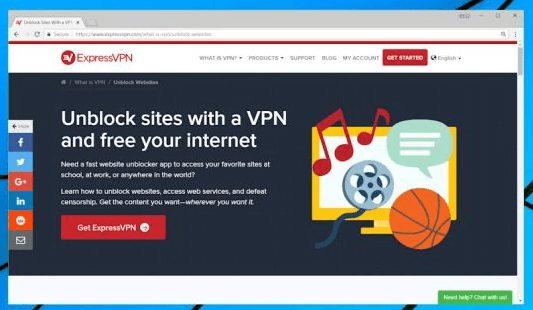
Netflix
One significant advantage of a VPN is that it can offer you access to geo-blocked websites. If your favourite streaming site only allows US visitors to look at some content, as an example, log in to a US VPN server, and you would possibly bypass the block.
Unfortunately, it isn’t always that simple. Providers like Netflix know what users are doing to try and get around their rules, and they are continually updating their systems to detect and block individual VPNs. Anyone may additionally prevent specific websites from a WiFi hotspot administrator who doesn’t want users accessing YouTube, to a nation-state trying to regulate the web use of its entire population.
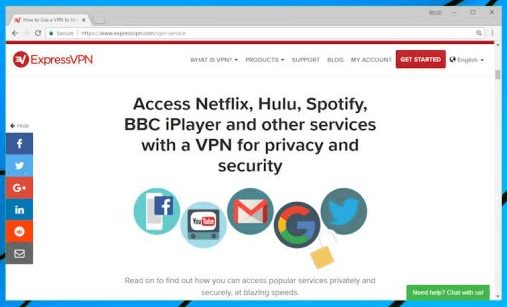
ExpressVPN scored an instantaneous thumbs-up from us by listing the sites it claims it can unblock: Netflix, BBC iPlayer, Amazon Prime, Google, Wikipedia, YouTube et al. (there are quite 25 services on the list). Most VPNs don’t make that sort of commitment, presumably because they do not want users to complain if they can not deliver, so it’s good to ascertain ExpressVPN spell out precisely what it can do.
To get a pity ExpressVPN’s unblocking abilities, we ran a few tests. The primary required connecting to a sample of ten ExpressVPN US locations, and checking whether we could access US Netflix and geo-blocked YouTube sites; the second involved connecting to all or any 7 UK locations and trying to access BBC iPlayer.
Netflix results were excellent, with an ideal 10 out of 10 locations unblocking the service (that’s up from 7 last time.) Albeit the service doesn’t work for you, we’ve found that calling up the support team on live chat will generally get you an accurate server recommendation within a few minutes. Netflix is improving its VPN detection all the time, and this might easily change. Still, ExpressVPN’s commitment to unblock Netflix suggests the corporate will fight back to stay the service available.
Unblocking YouTube is usually much more comfortable, and surely, ExpressVPN gave us instant access from each of its US servers.
The good news continued with BBC iPlayer. The platform has much better VPN protection than YouTube, but ExpressVPN didn’t care, and every of its UK servers allowed us to browse and stream content.
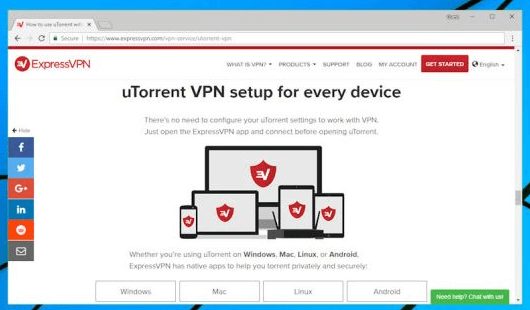
Torrents
ExpressVPN doesn’t appear very torrent-friendly initially glance, as initially glance its website doesn’t seem to say the subject in the least. There’s so little torrent awareness that if you type ‘p2p’ ‘in the knowledgebase Search box, as an example, it assumes you’ve made an error and searches for ‘pap’, instead.
No got to worry, though, ExpressVPN isn’t trying to cover anything. We dug around the FAQ and eventually discovered the reality.
The service not only supports torrents, but it also avoids the everyday hassles and annoyances you’ll often get with other services.
Torrent users aren’t forced onto a little number of overloaded servers, as an example. You’ll choose between the complete set of ExpressVPN locations.
There are not any bandwidth or transfer-related catches, either. The company has no data cap and says it’ll never throttle your connection.
Factor in other vital features of the service – no activity logs, many locations, apps for everything, the 30-day money-back guarantee – and ExpressVPN seems like an excellent choice of VPN for all of your torrenting needs.
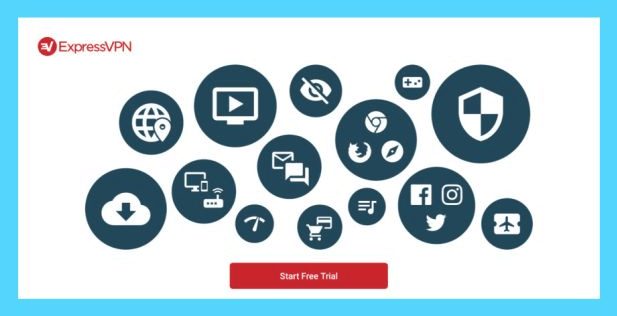
Client Setup
Getting a VPN client found out properly can sometimes be a challenge, but the well-designed ExpressVPN website has been found out to stay hassles to an absolute minimum.
Log in to your account dashboard, as an example, and you do not need to search for a Download link. The website detects the sort of device you’re using, displays a Download button for that client, and enables grabbing a replica with one click.
If you would like something for an additional platform, clicking ‘Set abreast of all of your devices’ takes you to an enormous list of options, including Windows, iOS, Kindle Fire, Mac, Android, Linux and more. You are tapping any of those displays more download links and directions.
Even these are much more helpful than you’d expect. Tap the ‘Android’ link with most VPNs, and you will probably just be redirected to Google Play. ExpressVPN features a Play Store link, but it also gives you a QR code, a button to email yourself a setup link (ideal if you would like to put in it on another device), and even an option for experts to directly download the APK file.
In a neat setup touch, ExpressVPN doesn’t force you to seek out and manually enter your username and password. Instead, all you’ve got to try to do is copy the unique activation code displayed on your download page, and paste it into the client when you’re asked. The software then automatically sets up your login credentials, and you will not need to believe usernames and passwords, at all.
Your other option is to line up a third-party OpenVPN client. ExpressVPN makes this much more comfortable by providing sensitive named.OVPN configuration files (my_expressvpn_argentina_udp.ovpn, as against something like NordVPN’s ar1.nordvpn.com.udp1194.ovpn), and that we had the OpenVPN GUI up and running within minutes.
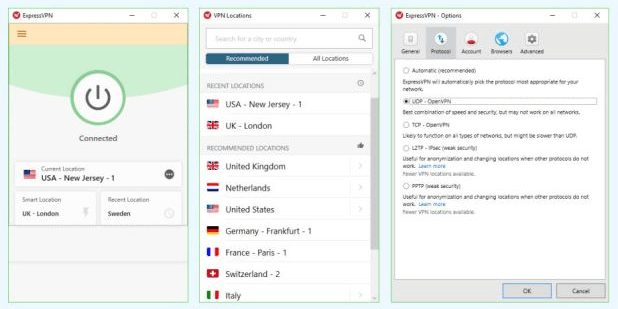
Windows Client
The ExpressVPN Windows client features a comfortable and familiar interface which immediately causes you to feel reception. A large On/ Off button allows you to activate the service when required. A transparent status display shows you the present server, and a Choose Location button enables picking something else. A menu button top-left gives speedy access to other features.
There are a number of the way to settle on the simplest server. A sensible Location feature picks your closest server. You’ll double-click a rustic to access its best Location, or browse every Location within a rough and choose one manually. An enquiry box allows you to seek out locations by keyword, and you’ll add different locations to a Favorites list.
The latest edition of the client even displays the currently selected Location, the ‘smart location’ (ExpressVPN’s recommended server) and your last choice of Location on the most client window. You’ll hook up with any of those with a click, and no got to leave to a location list in the least.
The client also makes smart use of its system tray icon, too. Right-clicking displays a menu which incorporates your last three locations, and selecting one among those will get you connected immediately, without having to open the full client.
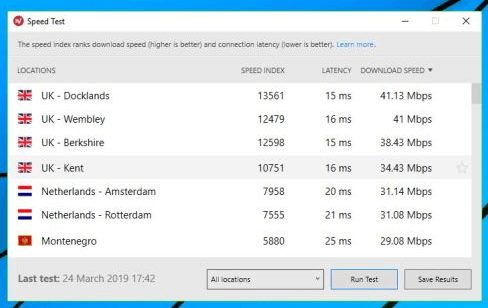
The Location list doesn’t initially display any information on the speed of its servers, something which may assist you to choose the fastest Location for you. The client features a Speed Test feature which may add this for you, and it provides much more useful information than the competition, including latency and an estimate of download speed. It can take an extended time to run, though – around six minutes to see every available Location, on our system – and although you’ll assess speeds for groups of servers (Europe, Americas, Recommended Locations). You cannot ask it to see only your recent and favourite locations, which is possibly needed where it is necessary.
A capable Settings dialogue allows you to settle on from four protocol variations: OpenVPN/ UDP, OpenVPN TCP, L2TP – IPSec, PPTP and IKEv2 (new this time). It’s good to possess that choice, although we’re less hooked into the default ‘Automatic’ setting, where apparently ‘ExpressVPN will automatically pick the protocol most appropriate for your network.’ Not only can we haven’t any idea how the choice is formed (the website offers no clues), but we will not even check it, because the client doesn’t tell you which of the protocol is currently active. It seems a poor design decision to us, but if you’re concerned, it’s easily fixed: choose a selected protocol (IKEv2 or OpenVPN UDP, probably) and therefore the client will use that, whenever.
Elsewhere, a Kill Switch blocks all internet traffic if the VPN connection drops, reducing the prospect of any data leaks. There is no setup involved this, it’s enabled by default, and always able to protect your privacy.
It works, too. We used various tricks to close both OpenVPN and IKEv2 connections forcibly, but the client handled everything perfectly, blocking internet traffic, keeping us informed with a desktop notification, and reconnecting in seconds.
Low-level technical touches include specialist IPv6 leak protection, and therefore the ability to use your default DNS servers when using the VPN (you’ll use ExpressVPN’s own, by default.)
ExpressVPN’s most advanced feature is perhaps its support for split tunnelling, a sensible technology which enables defining which apps use the VPN, and which use your regular internet connection. If an application doesn’t work when your VPN is up (an email client, say), you’ll make it use your standard internet connection, instead. And if you employ your VPN for one or two applications only – a browser, a torrent app – then redirecting everything else out of the tunnel could improve their performance.
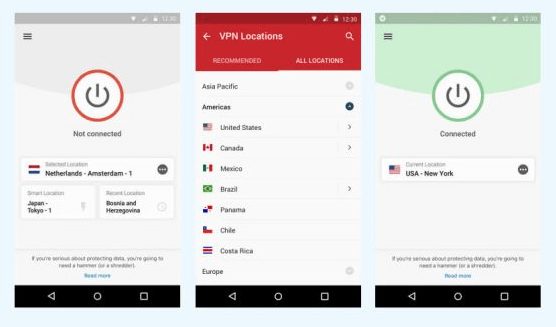
Android App
If you’re new ExpressVPN, installing the Android app works very similar to the other. Attend the Play Store, find the app, notice its impressive stats (5 million+ users and a 4.1 rating), install it as was common and run through the signup process.
If you’ve already found out an ExpressVPN account, there are some more comfortable options. We visited the ExpressVPN web console on our Windows system, chose the Setup> Android page, scanned the QR code and automatically downloaded and installed the app (your phone must allow installations from outside of the Play Store for this to figure .)
We still had to form a few of basic setup choices, as an example deciding if we wanted to permit the app to send anonymous analytics back to ExpressVPN. Still, otherwise the method was completed in seconds. primarily, we did not have to stress about finding and entering some cryptic username and password, because the app configured that automatically during installation, and once that’s done you would like never see a login screen again. (Although you’ll sign out for extra security if you favour.)
The app looks good and works in much a similar way because of the Windows edition. A superb Location Picker makes it quick and straightforward to seek out and reconnect to particular servers, you’ll connect and disconnect with a click, and therefore the straightforward interface allows you to see your current Location and VPN status at a look.
The Android app leaves out a number of the more advanced features from the Windows edition. There is no Speed Test, as an example, which suggests you will only ever see the names of ExpressVPN locations, with no indicator of how briskly, slow or overloaded they could be.
The Settings section has improved since our last review with the addition of an integrated kill switch. That’s a severe addiction, but the app remains missing some settings of the desktop build. Protocol choices are restricted to OpenVPN TCP or UDP, as an example. There is no IPv6 leak protection and no control over DNS.
The app does have split tunnelling, though, allowing you to define which apps should or shouldn’t use the VPN. If you’re only curious about Netflix, as an example, you’ll found out ExpressVPN to channel your Netflix app traffic through the tunnel, while allowing everything else to travel through your regular connection, perhaps improving performance.
The Auto-connect feature may be a particularly welcome addition, optionally connecting you to the VPN whenever you join untrusted networks.
The app’s ‘App and Website Shortcuts’ feature sees a configurable toolbar on the connection window, which may delay to five icons for your favourite apps and shortcuts. It is a straightforward idea, but a useful one, which enables launching commonly used apps with a faucet even as soon as you’re connected.
It’s not quite the foremost powerful Android app we have seen (and especially, we’d like more choice of protocols), but otherwise ExpressVPN’s Android offering is well-designed and straightforward to use. Even better, install the app, and you’ll try the service for free of charge for seven days, a suggestion you will not get if you check in on the website. If you’re in the least curious about Android VPN apps, ExpressVPN must get on your shortlist.
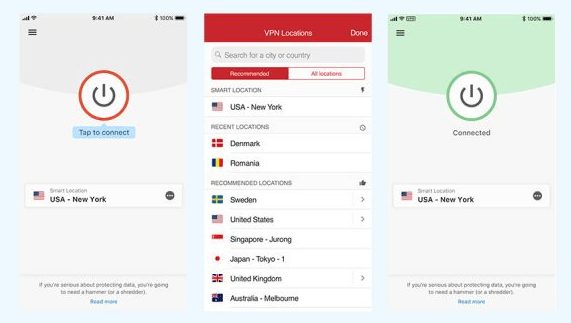
iOS App
ExpressVPN’s iOS app takes a couple of more taps to put in than its Android cousin, but that’s mostly thanks to Apple’s extra security measures. You’ve got to spend a touch longer confirming that the app is permitted to try to do what it needs, and there is no Android-like direct download app link to save lots of you a while.
The setup procedure still only takes a few minutes, though. Once it’s done, the app opens with an equivalent clean and comfortable interface that you’re going to see on other platforms: a recommended location, a large Connect button to urge online, and a menu button to explore further.
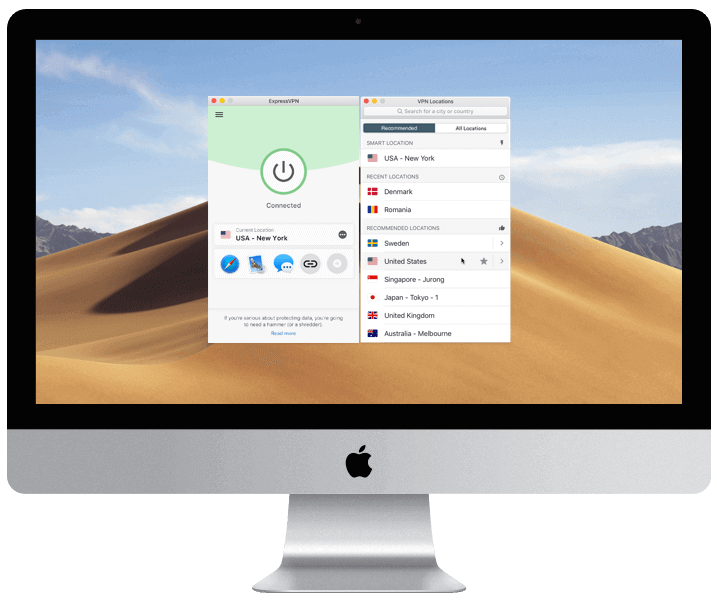
The well-designed Location Picker offers multiple ways to seek out specific cities or countries, also as maintaining a Recent Connection list and allowing you to feature commonly used locations to your Favorites.
As with the Android app, the iOS edition allows you to modify servers without manually closing the existing connection first. This only saves you one tap, but if you often switch servers, it’s getting to be a welcome usability plus.
Your choice of the protocol doesn’t just include OpenVPN UDP and TCP, as an example – you furthermore may have access to L2TP and IKEv2, neither of which are available on Android.
And although the app doesn’t have a kill switch, it does include an auto-reconnect option which can attempt to re-establish the tunnel if your connection drops.
We’ve seen more feature-packed VPN apps, but after all, ExpressVPN’s iOS offering is likeable, easy to use and delivers the functionality most users are likely to wish. And if you want to see the service for yourself, good news: like Android, there is a risk-free 7-day trial available.
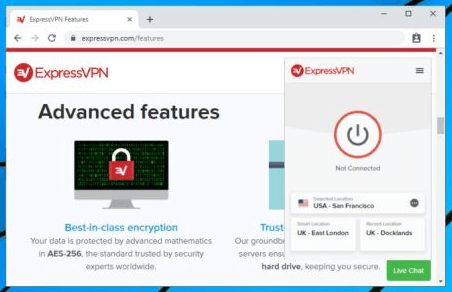
Browser Extensions
The ExpressVPN clients are generally very polished and straightforward to use, but they are not your only thanks to work with the VPN. The company also offers Chrome and Firefox extensions which permit you to regulate the client and repair directly from your browser.
Unlike almost every VPN provider, ExpressVPN’s browser extensions aren’t simple proxies. They’re browser-based interfaces for your Windows, Mac or Linux client: they will not work unless you’ve got them installed. That’s inconvenient, but there are some significant benefits, too.
Launch ExpressVPN’s browser extension, as an example, and it’s ready to communicate with the desktop client and skim its state. The default location is going to be set to an equivalent because of the client. And if the client is currently connected, your extension will reflect that.
You can control the desktop client from the browser, too. If you would like to unblock one website, you’ll choose a VPN location from within your browser, hook up with it, do whatever browsing you would like, and disconnect ExpressVPN when you’re done. It’s all swift and convenient, with no need in the least to modify backwards and forwards between your browser and therefore the ExpressVPN client.
This works well at a comfortable level. The browser extension interface looks very similar to the regular clients and apps, with an identical system for browsing and selecting locations.
As it is merely a basic front for the desktop engine, it’s no surprise that the extension has some limitations. There is no Favorites system as an example, No Speed test. There are only two options, too (‘Connect on browser launch’ and ‘Show desktop notifications’), although you can open the desktop app’s Settings dialog directly from the browser extension.
There’s excellent news, too, with some welcome privacy tools. Both the Chrome and now the Firefox extension include settings to stop HTML5 geolocation from revealing your real Location. At the same time, you’re connected to the VPN, also as blocking WebRTC leaks at the browser level, and using HTTPS Everywhere to automatically force connections to the HTTPS versions of internet sites whenever they’re available.
The browser extension won’t be for everybody, especially as you want to have the app installed to use it. But the power to regulate the app from within the browser may be a genuinely useful feature that you simply won’t find with the competition, and overall it is a very worthwhile addition to the package.
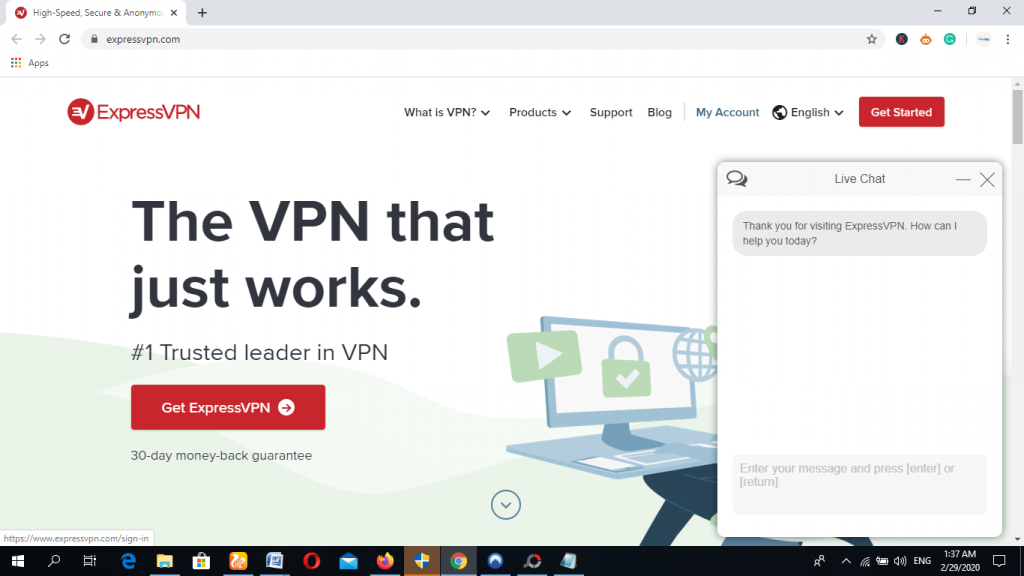
Customer Care Support
Much like the other networking technology, a VPN can misbehave in some ways, and deciding what is going on is often a real challenge. That’s why even the foremost experienced user can enjoy quality VPN support.
ExpressVPN’s support site gets off to an honest start with its lengthy list of troubleshooting guides. Whether you’re trying to diagnose slow speeds or dropped connections, understand error messages, change your password or cancel your account, there’s useful information handy.
Most articles are well-written and deliver the key areas altogether. they do not assume technical knowledge, instead of taking the time to elucidate the background, offering multiple suggestions to resolve most problems, and linking to other relevant articles where they’ll provide relevant details. (For example, where other VPNs may need one line suggesting you “try another server” to diagnose speed problems, ExpressVPN also links to an in-depth article explaining the way to find the simplest Location for you.)
The setup articles are even more impressive. You do not get only one generic installation tutorial per platform, for instance. There are not any, but 9 Windows tutorials are covering the installation of ExpressVPN’s apps, and manual Setup for various Windows versions. You get 6 for Mac, 6 for iOS, 5 for Android, and even Linux has separate setup guides for Ubuntu, Raspberry Pi, Terminal (via OpenVPN) and more.
An accurate program scans quite 250 of those articles to seek out whatever fits your requirements. It’s hugely refreshing to enter keywords on a VPN support site and indeed accompany tons of useful content. (OpenVPN gets 42 hits, DNS gets 73, there’s 45 for Android, 16 for Ubuntu, 15 for DD-WRT, and therefore the list goes on.)
If the web site can not help, ExpressVPN’s support team is out there 24/7 via email and live chat.
ExpressVPN recommends Live Chat for the fastest results, but we sent a test email question anyway to see response times. Although the corporate suggests it can take up to 24 hours to urge a reply, we got a friendly, detailed and helpful message in under an hour. That’s much faster than we expected, and therefore the response contained everything we would have liked to diagnose and resolve our issue.
Live chat also performed alright. We ran several testing on the service, there have always been agents available, and typically we had a genuine primary response (a real discussion of our issues) within two or three minutes.
The quality of chat support was well above average, too, with the agent spending half-hour patiently walking us through some well-chosen diagnostic steps. Whether you are a networking newbie or an experienced expert, there is a good chance that ExpressVPN’s support is going to be ready to solve any issues within a real jiffy.
Final verdict
This is a top-quality VPN which exceeded our expectations in everything from platform support and privacy, to simple use, unblocking abilities and its excellent support. The shortage of an integrated kill turn on mobile apps could be a problem for a few, but otherwise, this is often a refined, powerful and professional service.

